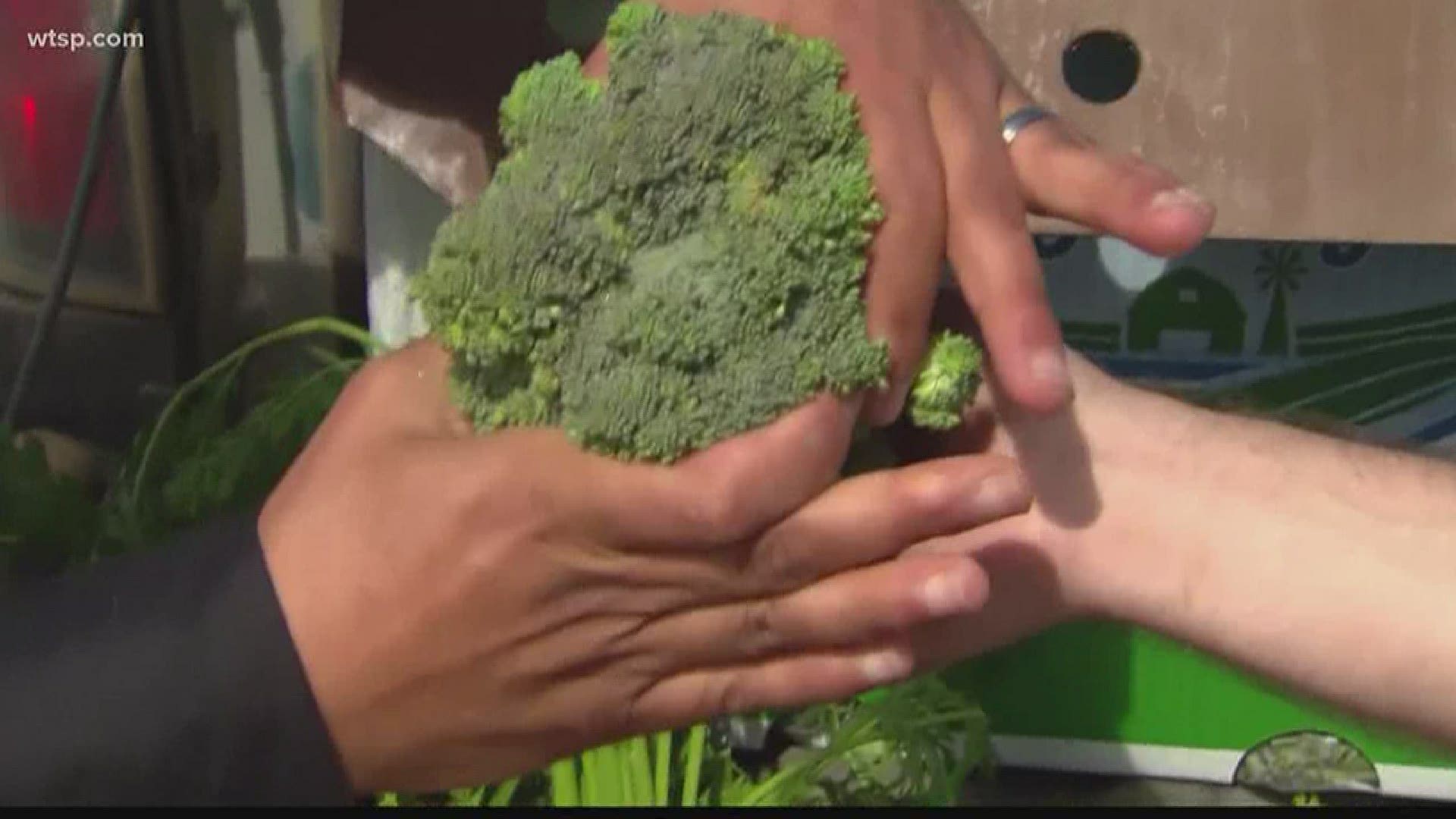TAMPA, Fla. — Florida farmers are losing their crops at an alarming rate. The coronavirus pandemic caused many businesses in the foodservice industry, like restaurants, to close their doors.
The rippling effect caused farmers all across the United States to let most of their produce to rot in the fields.
The small batch of goods farms manage to save is donated to food banks. And some farmers are inviting people to their land to pick their own produce.
In light of coronavirus, some people are hesitant to venture out to you-pick farms because they are not sure of the safety precautions farmers are using to protect their produce from contamination.
RELATED: Here are the 10 most searched recipes of the past 30 days, according to Google
According to the Food and Drug Administration, every year about 48 million people get sick by eating contaminated food. To date, the FDA has yet to find evidence of coronavirus being transmitted to food or food packaging.
However, given that COVID-19 is a new virus, the World Health Organization is working with national and international food safety experts on research to find out if the virus has the potential to affect our food supply.
Researchers from the University of Florida, Institute of Food and Agricultural Sciences notes that food safety has always been top of mind for years.
“In general, people should know that the fresh fruits and vegetables, we have been dealing with food safety issues for a while, in terms of getting the industry up to speed to implementing good food safety practices,” explained Mark Ritenour. Ph.D., who is a professor at UF/IFAS in the Postharvest Physiology & Handling program.
“In terms of the food that's coming in from the field, you've got the time that it's being harvested, then packed into containers, then it goes to a facility to be cooled,” Ritenour explained.
“A lot of fruits and vegetables spend a lot of their lives in a truck. And the FDA, the Food Safety Modernization Act has its own sanitary transport rule for sanitation of those containers and vehicles during transport of the product as well.”
To sum it up, the professor said there's a relatively good amount of time between harvest by the time the product gets to the consumer, for some germs to die off.
No matter how much precaution is taken, people still have questions about food safety in the era of COVID-19.
To put people’s minds at ease, UF/IFAS researchers, including Ritenour, answered questions frequently asked by the general public.
Farm and Food Saftey FAQ:
Q: What cleaning products are recommended on-farm to sanitize while keeping produce safe?
A: (Ritenour) “There are several products labeled and available for cleaning and sanitizing equipment, water systems, and even allowed for contact with fresh produce. The product chosen is usually a factor of which fits best with the process in question, environmental conditions and characteristics of the product itself.
Q: What can farm managers do to mitigate the risks of COVID-19 contaminating produce?
A: (Ritenour) “Follow all existing food safety requirements and continue creating a culture of food safety and good personal hygiene within the organization. It requires active participation and attentiveness by all levels of employees within the company.
Social distancing and trying not to come in close contact are difficult to do in some farm and processing settings. It is important to adjust when possible.
Q: Should these sanitation practices be adjusted in the time of COVID-19?
A: (Ritenour) Current training in maintaining good personal hygiene and the exclusion of sick workers has already been stressed as both important for preventing contamination of food with human pathogens, but also important for preventing transmission of disease among workers.
However, the ease with which COVID-19 is transmitted means additional scrutiny is needed to minimize the spread of the virus between employees. While all social distancing practices are not always possible within agricultural production, packing and processing operations, employees should follow the Centers for Disease Control and Prevention guidelines to the best extent possible.
If you’re interested in the full Q&A, UF/IFAS posted the unedited version on its blog, which you can find here.
- These essential workers could get $25,000 in hazard pay under 'Hero Fund' plan
- Vinik Family Foundation donates $100K to help St. Pete small businesses during pandemic
- How to have a quarantine birthday during the COVID-19 outbreak
- How to have a quarantine Easter celebration
- When will your federal stimulus check arrive?
- Hotlines, websites offer the latest on COVID-19
FREE 10NEWS APP:
►Stay In the Know! Sign up now for the Brightside Blend Newsletter



